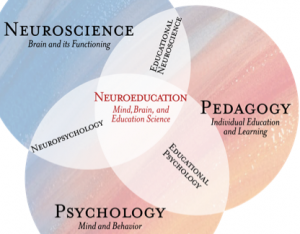Educational Neuroscience Could Reshape Practice
 There has been a serious uptick in using cognitive psychology and neuroscience to improve teaching and learning. The new field of educational neuroscience is burgeoning and has implications for practice. For a good overview check out the latest edition of Mind, Brain and Education: Implications for Educators. It is free online.
There has been a serious uptick in using cognitive psychology and neuroscience to improve teaching and learning. The new field of educational neuroscience is burgeoning and has implications for practice. For a good overview check out the latest edition of Mind, Brain and Education: Implications for Educators. It is free online.
Be sure to read David Sousa’s commentary on the Impact of Educational Neuroscience on the Science of Teaching. It begins on page 37. He summarizes 13 key findings and their implications for how we educate. Cognitive designers will especially appreciate the findings on emotions, movement, working memory and the role of arts in stimulating learning and developing our brains.
After reading all the articles, it is clear that we have enough new science to reshape the practice of teaching and learning.
I am interested to hear from readers that are applying findings from neuroscience to change how they teach or otherwise facilitate learning.
Source of Image: John Hopkins School of Education